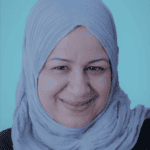Strengthening Yemen’s Health System Amidst COVID-19 and Conflict
July 1st, 2020 | viewpoint
In late 2019, JSI was awarded the USAID-supported Systems, Health, and Resiliency Project (SHARP), which is working to improve maternal and child health outcomes, increase community engagement in the health sector, and improve the resiliency of Yemen’s health system.
SHARP Chief of Party Dr. Alejandro Soto Romero and Technical Director Dr. Suaad Shaker Al-Hetari (who is also serving as acting chief of party until Dr. Romero is able to join the team in Yemen when the borders open), reflect on the opportunities and challenges of starting up a health system strengthening project amidst a pandemic and protracted conflict.
Alejandro: SHARP is a development project that focuses on strengthening Yemen’s health systems and improving maternal, newborn, and child health outcomes using innovative, scalable, and sustainable solutions. What’s notable is that SHARP is operating during an ongoing and escalating conflict, which requires a continued and significant humanitarian response. We expect that SHARP will reduce deaths among women of reproductive age, their newborns, and children under five by improving the resiliency of community health systems.
Suaad: To build on what Alejandro said, I would add that SHARP will help improve health management information systems, as well as explore and pilot opportunities for innovative financing mechanisms for health. By the end of the project, we hope to improve health service delivery through a more resilient health system and more accountable local authorities.
Alejandro: COVID-19 is presenting a very difficult challenge in a country already dealing with a six-year armed conflict in which half of the health facilities are not functional. This leaves the population more vulnerable as there is also a critical shortage of essential supplies such as personal protective equipment , tests, and oxygen. SHARP will work with communities to educate and create awareness about how to protect themselves and their families against getting infected with COVID-19.
Suaad: As Alejandro said, Yemen’s infrastructure has been devastated by years of conflict, leaving little capacity to respond to COVID-19. Yemen already has been grappling with the spread of multiple diseases, mainly cholera, dengue fever, malaria, and chikungunya. Now COVID-19 puts Yemen in a worse place. Many families have been displaced as a result of COVID-19 and tens of millions of people’s lives are now at risk. The case fatality rate from COVID-19 is alarmingly high in Yemen, exceeding 24.7 percent. The COVID-19 response is pulling scarce resources from other lifesaving health responses including cholera and dengue.
SHARP will ensure that health services remain available throughout the COVID-19 pandemic. Most mothers fear that going to the health facility will put them and their children at risk of contracting COVID-19. To address this, SHARP will support community midwives to provide primary health care services right in the community and only refer complicated cases to health facilities. SHARP also will support the Ministry of Public Health and Population to review and update the minimum service package training guidelines, which identify the health services that must be available at different health facilities.
Alejandro: First, SHARP will be supporting the Ministry of Public Health and Population to create demand among the population for RMNCH+N services and improve healthy behaviors by educating communities through the media and and community health counseling and services. Second, SHARP will work on improving access to affordable and high-quality health services among women of reproductive age and children under five. For this to happen, the project will build the capacity of health facilities and practitioners to provide high-quality services through in-service training, implementing continuous quality improvement, and strengthening management systems. SHARP also will revitalize community services by engaging and training community midwives and volunteers to promote healthy behaviors among communities and link them to health facilities for services.
Suaad: To add to what Alejandro said, SHARP will depend on three approaches to help the project succeed: the first is to take an integrated approach to improving the implementation of Yemen’s minimum service package, the second is to engage local institutions along the way, so that when the time comes, transfering programming and activities to local organizations will be smooth, and the third is to ensure our solutions are locally appropriate and that we always work through existing networks and structures to address health challenges.
Alejandro: The fact that despite all these challenges, we are able to do something to improve the health system so that it is and will be more prepared to fight diseases like COVID-19 and to help the population be more aware about how to protect themselves.
Suaad: What makes me optimistic is that I am sure SHARP and the goals that it carries will find support from the authorities and society due to the severe need for such a project in Yemen. The health system in Yemen has collapsed. Mothers and their children die because they have difficulty accessing health services. Even the families who can reach health facilities cannot find good-quality services because well-trained service providers and/or proper equipment and supplies are unavailable. SHARP aims to start closing these gaps.
For more than five years, Yemen has been locked in a seemingly intractable civil war that has killed thousands of people and pushed millions to the brink of starvation. The war has produced an unrelenting humanitarian crisis; approximately 3.34 million people remain displaced, 24 million people need health assistance, particularly pregnant and lactating women, who have limited or no access to reproductive health services. Millions of people were impoverished, more than two million children are malnourished, with one in two suffering from stunted growth because of food shortages. Despite being a completely treatable disease, since late 2016 thousands of people have died from outbreaks of cholera. Other contagious diseases such as dengue fever, measles, diphtheria, and now COVID-19, also are spreading in the country.
 Dr. Alejandro Soto Romero is a health care professional with over 10 years of progressive experience providing project management and technical leadership for multi-million-dollar programs that span a variety of public health areas including maternal and child health, nutrition, HIV, TB, malaria, and home-based care. Dr. Soto has proven experience in strengthening health systems and ensuring health service integration, and linking community-based care to facility-based care.
Dr. Alejandro Soto Romero is a health care professional with over 10 years of progressive experience providing project management and technical leadership for multi-million-dollar programs that span a variety of public health areas including maternal and child health, nutrition, HIV, TB, malaria, and home-based care. Dr. Soto has proven experience in strengthening health systems and ensuring health service integration, and linking community-based care to facility-based care.

Dr. Suaad Shaker Al-Hetari is a pediatrician with more than 25 years of experience in clinical and public health practice in Yemen and more than 13 years of experience working with international NGOs with an emphasis on integrated child health and nutrition. Throughout her career, Dr. Al-Hetari has worked extensively in conflict zones as a clinician and has experience effectively coordinating field teams to implement complex health programs. Dr. Al-Hetari previously worked with JSI as the newborn and child health officer for the USAID Maternal and Child Health Integrated Program (MCHIP), and served as acting chief of party to help with the untimely closing of the program when the war started.
We strive to build lasting relationships to produce better health outcomes for all.